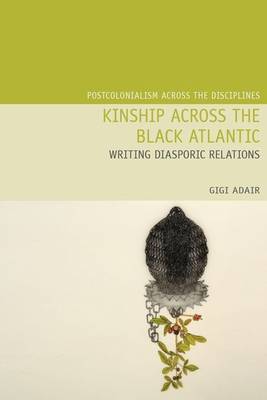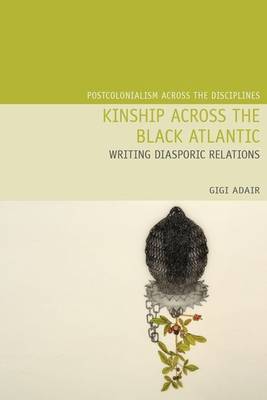
Door een staking bij bpost kan je online bestelling op dit moment iets langer onderweg zijn dan voorzien. Dringend iets nodig? Onze winkels ontvangen jou met open armen!
- Afhalen na 1 uur in een winkel met voorraad
- Gratis thuislevering in België vanaf € 30
- Ruim aanbod met 7 miljoen producten
Door een staking bij bpost kan je online bestelling op dit moment iets langer onderweg zijn dan voorzien. Dringend iets nodig? Onze winkels ontvangen jou met open armen!
- Afhalen na 1 uur in een winkel met voorraad
- Gratis thuislevering in België vanaf € 30
- Ruim aanbod met 7 miljoen producten
Zoeken
Omschrijving
An Open Access edition of this book is available on the Liverpool University Press website and through Knowledge Unlatched.
This book considers the meaning of kinship across black Atlantic diasporas in the Caribbean, Western Europe and North America via readings of six contemporary novels. It draws upon and combines insights from postcolonial studies, queer theory and black Atlantic diaspora studies in novel ways to examine the ways in which contemporary writers engage with the legacy of anthropological discourses of kinship, interrogate the connections between kinship and historiography, and imagine new forms of diasporic relationality and subjectivity. The novels considered here offer sustained meditations on the meaning of kinship and its role in diasporic cultures and communities; they represent diasporic kinship in the context and crosscurrents of both historical and contemporary forces, such as slavery, colonialism, migration, political struggles and artistic creation. They show how displacement and migration require and generate new forms and understandings of kinship, and how kinship may be used as an instrument of both political oppression and resistance. Finally, they demonstrate the importance of literature in imagining possibilities for alternative forms of relationality and in finding a language to express the meaning of those relations. This book thus suggests that an analysis of discourses and practices of kinship is essential to understanding diasporic modernity at the turn of the twenty-first century.Specificaties
Betrokkenen
- Auteur(s):
- Uitgeverij:
Inhoud
- Aantal bladzijden:
- 210
- Taal:
- Engels
- Reeks:
- Reeksnummer:
- nr. 23
Eigenschappen
- Productcode (EAN):
- 9781789620375
- Verschijningsdatum:
- 19/11/2019
- Uitvoering:
- Hardcover
- Formaat:
- Genaaid
- Afmetingen:
- 160 mm x 236 mm
- Gewicht:
- 430 g

Alleen bij Standaard Boekhandel
+ 315 punten op je klantenkaart van Standaard Boekhandel
Beoordelingen
We publiceren alleen reviews die voldoen aan de voorwaarden voor reviews. Bekijk onze voorwaarden voor reviews.











